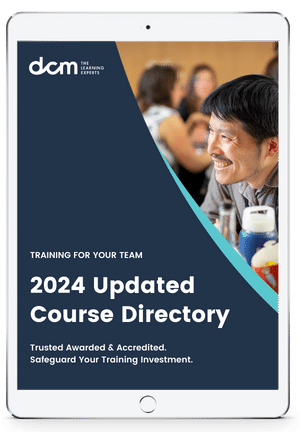Do you want to learn another language? Would you like to get into better shape? Are you interested in learning how to code? Many of us would love to acquire new skills, but write them off as “too difficult” or “too time consuming” to pursue.
By using accelerated learning techniques, you can rapidly learn skills that normally take months, years, or decades of study. In this blog post, you’ll learn 10 accelerated learning tactics that you can apply to learn any skill, language, or technology.
1. Break difficult ambitions into smaller, achievable goals
When learning new skills, people often confuse ambitions with goals. “Learning how to speak Spanish” is an ambition – something one aspires to do. “Learn the 100 most frequently used Spanish words” is a measurable, achievable goal.
The key to enhancing your learning capabilities is being able to break down all of your ambitions – whether they’re related to business, language, or health – into a series of small, measurable, and achievable goals.
From programming to fitness, break large goals down into smaller steps and you’ll find they aren’t as difficult to achieve as you think. Our course, Learning to Learn, is a wonderful resource for improving your ability to break down complex tasks.
2. Use the 80:20 principle to focus on vital information
Have you ever heard of the Pareto principle? It’s a simple rule that says that 80% of your results will come from 20% of your work. It’s mostly used in business (80% of sales, for example, coming from 20% of customers) but it can be applied to anything.
In English, 20% of words make up 80% of written language. In music, 20% of chord progressions make up 80% of all pop songs. Accelerated learning requires that you focus on the vital 20% and avoid wasting time on the less vital 80% of the task.
Apply the Pareto principle to all of your learning, from foreign language vocabulary to computer programming, and you’ll learn faster than ever. Learn more about the Pareto principle by enrolling in our Master Your Time productivity course.
3. Learn how to block out distractions and single-task
Real estate investor Gary Keller has a wonderful quote about multitasking: “You can do two things at once, but you can’t focus effectively on two things at once.” It’s often far less productive to multitask than it is to focus on one task at a time.
After you’ve broken your goal down into small, achievable steps, you need to focus on one at a time. Block out distractions – from YouTube to emails – and spend all of your energy working on one task at a time for maximum productivity.
4. Practice new skills as you learn them to improve memory
It’s far easier to learn a skill when you can practice it easily. For example, the basic steps of playing pool – calculating the angle and striking the ball – are very simple, but without a cue in hand to practice with, remarkably difficult to master.
The key to retaining information is practice. As soon as you’ve learned the basics of a new skill – from PHP to Spanish vocabulary – put them to use by creating practical tests for yourself.
5. Use mind maps to enhance your information retention skills
Mind maps are powerful tools for accelerated learning. By creating a mind map for new skills you’d like to master, you can more easily break them down into smaller steps for study, revision, and practice.
You can use mind maps to solve problems, break complex systems down into small, simple processes, or just deconstruct a complicated task. Learn more about how to use mind maps in our blog post on mind map examples. The benefits of using mind maps are huge, from improved organizational skills to a deeper, more practical understanding of almost any topic.
6. Break your work into small sessions to avoid cognitive burnout
Do you feel burned out towards the end of the workday? Most people work far more efficiently in small sessions of 25 minutes to an hour than in solid 3-4 hour blocks of constant, hands-on work.
Regardless of how efficient your learning skills are, you’ll struggle to develop skills if you lack the motivation and energy to continue. Cognitive burnout and stress can be serious issues for lifelong learners, no matter how productive they are.
One of the best ways to avoid burnout is by using the Pomodoro technique to break your work and learning sessions into small, easily manageable slices.
7. Collaborate with friends to test your abilities and knowledge
Are you a competitive person? Setting yourself challenges is one of the best ways to improve your focus and accelerate the process of learning anything. Work with your friends to test each other’s abilities and acquire new skills together.
From vocabulary competitions for learning foreign languages to measuring progress in the weights room, healthy competition is a great way to accelerate the process of learning new skills.
8. Once you’ve learned a new skill, reactivate it as required
We often compare skills to riding a bike, noting that once they’re learned, it’s almost impossible to forget them. Not all skills are like this – skills-based around knowledge rather than muscle memory, such as languages, are surprisingly easy to unlearn.
Luckily, reactivating a lost skill – whether it’s the ability to play the guitar or fluency in Italian – is simple. Accelerate the process of relearning skills you’ve forgotten by using exercises to remember the fundamentals so the rest comes back naturally.
For a language, the process is often as simple as watching foreign TV shows without subtitles.
9. Don’t work too hard – take a break to refresh your mind and body
Almost anyone with a 9 AM to 5 PM schedule can attest to the fact that most of their productive work occurs in the morning. While some people can work for days with no decline in productivity, most of us work best in a 3-4 hour daily window.
This 3-4 hour window of productivity also applies to learn. The time we spend on learning something and the knowledge we retain is not a linear curve – it’s far more often a logarithmic one.
In order to maximize your learning skills, it’s often important to work less. Focus on relaxing, taking a break, and letting the information you’ve acquired sink in instead of cramming endlessly to maximize sheer informational input.
One of the best ways to improve information retention is by reducing stress. Not a natural at getting rid of stress? Do not worry, most of us cannot cope with it in healthy ways. Stress Management course to learn how to reduce stress and anxiety.
10. Create metrics for measuring and tracking your progress
Like famous management consultant Peter Drucker said, “what gets measured, gets managed.” One of the most effective tactics for accelerated learning is tracking and measuring your progress.
Create metrics for determining your success in a particular field – from the vocabulary in a foreign language to reps or mile times in personal fitness – so that you can keep track of your progress. Without metrics, it’s impossible to tell if you’re improving.
Learn more about accelerated learning
Do you want to learn a new language? Would you like to become a programmer? Is it your dream to master the piano? By using accelerated learning techniques, skills that once seemed impossible can be rapidly acquired and mastered.
From developing a meta-strategy to visualizing your future, develop the mindset for accelerated learning by enrolling in our Accelerated Learning Workshop.
Source: Udemy Editor



_165x115_fc3.jpg)




